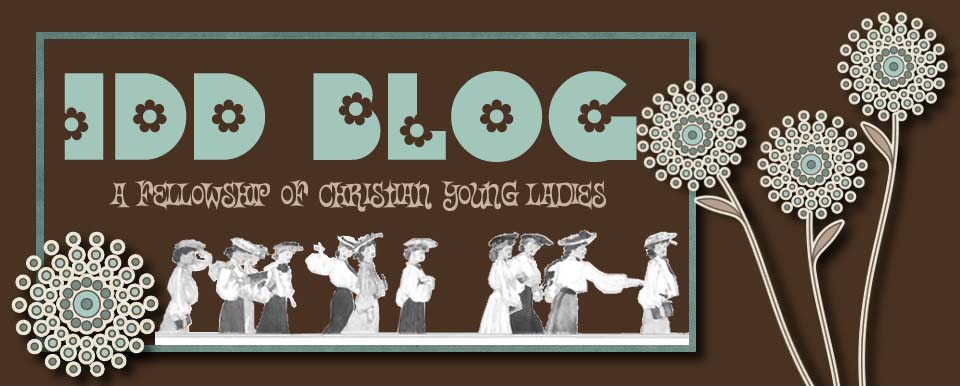Christians and Writing
Not long ago a college senior asked if she could talk to me about being a Christian writer. If she wanted to write Christian fiction, how was she to go about it?
I told her if she is truly and deeply a Christian, what she writes is going to be Christian, whether she mentions Jesus or not. And if she is not, in the most profound sense, Christian, then what she writes is not going to be Christian, no matter how many times she invokes the name of the Lord.
- Madeleine L’Engle, Walking on Water: Reflections of Faith & Art
This topic has come up for discussion in our house lately: what makes something Christian? Does slapping the label ‘Christian’ or sprinkling mentions of Jesus liberally make a story Christian?
I struggle with this, myself. I love to read and find myself torn in this regard, both in reading and writing. Is a story better in the Christian sense merely because it involves characters who pray to God and try to live Christian lives, even if it isn’t well-written? Is a well-written story with a clear glimpse of good versus evil to be rejected merely because it doesn’t mention the name of God?
Am I to strive to include God’s name even when it doesn’t fit and seems awkward? Is it all right if I try to portray the light overcoming the darkness, even if the characters never attend church once in the story? Is it all right if I pen something of the fantasy genre, a world where God isn’t called by the name of Jesus?
I believe we need stories that talk about God, about Jesus – in a reverent and holy manner – yet not come across as overly piousness that nobody can identify with, so often found in Christian stories reprinted from the Victorian age. We need more Christian writers, striving for excellence in this field, trying their best to write stories that aren’t dripping with pious sentimentality or are the cotton-candy fluff that comes in paperback romances these days.
Yet, is it wrong for a writer to pen stories that don’t mention God? I look back on the stories that I have read and loved and found myself encouraged by, and so many of them don’t fit into the “Christian Fiction” genre. I have learned so much more from novels that aren’t inherently outright “Christian” than from most of the Christian fiction I have read. There’s Tolkien’s “Lord of the Rings,” just for one example; even though the trilogy was written by a Christian, the stories never mention God. I have read adventures stories where not a single character talks about God, yet they are striving to overcome evil with good. Children’s stories, too, in which children grapple with moral dilemmas: should I do something I know I’m not supposed to, what decision should I make?
I keep coming back to the good versus evil part of the equation. Good versus evil has been around since the beginning. Choices have been around since the beginning. Choose you this day to serve the Lord. Choose that which brings life or that which brings death. That’s what I keep coming back to; if my story has a focus, a source and balance of morals, I truly believe that God can be and is glorified by it.
So. Can a Christian writer create a story without mentioning God? I believe that you can. I agree with Madeleine L’Engle. If we are God-followers, no matter what we write, it is going to be Christian.








6 comments:
*Rebecca and Katie's little sister once again puts in her 0.02*
I have struggled with the same questions about writing, being as I am an aspiring writer(and only aspiring, not much more.)
On one hand, I have read christian fiction that inspired me greatly, as the character learns about God, I do too. Their revelations and what they learn are amazing. God is a vital part of the story.
On the other hand I have read books that are "christian" in other words the characters go to church and talk about God, but it all feels very out of place, like it's just stuck in there to make it a "christian" book. If I was a non-christian reading those books it would confirm in me that Christianity is a religion of rules and not at all personal or fun.
Then there's the stories that don't mention God at all (I.E you mentioned Lord of the Rings, my example is the Chronicles of Narnia,)these books that do not mention God, but rather teach his truths and him under a different name. Theses books inspire me almost more than christian books that do mention God by name. But can you teach God's truths without his name? In some ways, yes. As you mentioned good v. evil is an old battle. But people need to also acknowledge that God is the good. So can a writer teach God, without, umm.. God?
So I don't know if that made sense. I agree with what you said and just wanted to impute my 0.02.
What a great article, Krista. That's something I've thought about a LOT. I want to glorify God with my writing, but HOW do I do this without coming across as sappy and turning off most of my readers? It's not my place to sneak a sermon in my story, anyway. So how?
You've given me something to think about.
the book of Ruth in the Bible hardly mentions God at all... cept for "your God will be my God"... and it speaks loudly of the goodness of God!
Marie
If you're interested, Hilaire Belloc, Maurice Baring and Willa Cather are some very fervent Christian authors who will challenge your ideas of what makes Christian literature. Also, G. K. Chesterton. (Less "literary", but very enjoyable.)
Great post, Krista! :)
Excellent post, and a topic dear to my own heart as a Christian who is an author publishing books in the "secular" market. I know how much my worldview affects what I write and don't write and what themes are dear to my heart, but will the readers see any of those things? I can only wait and wonder...
But I have been much heartened by finding out that D.M. Cornish who writes the "Monster Blood Tattoo" series of YA fantasy novels (FOUNDLING and LAMPLIGHTER are the two books out at present) is a Christian, and that even though his books don't mention God (or any kind of religion at all), I could sense a Biblical moral framework behind his writing and was glad to see that intuition confirmed by an interview I read with him where he talked about his faith. Very interesting and encouraging to know that there are other committed Christians writing fantasy for a general audience and not just preaching to the choir, so to speak.
Post a Comment